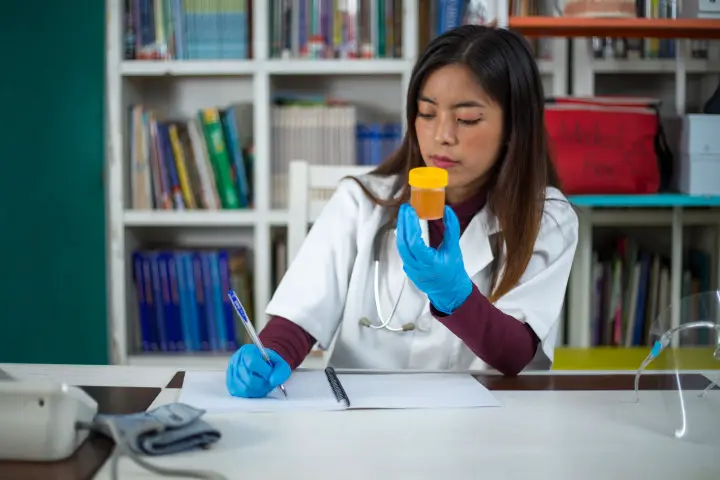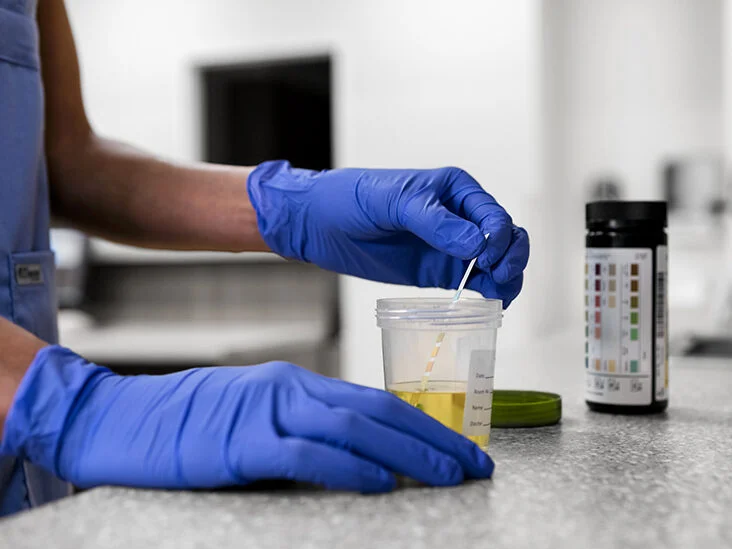Last Updated on May 1, 2023 by QCity Editorial Stuff
Urine samples for drug testing are typically refrigerated at temperatures between 2°C to 8°C and can be stored for up to 72 hours before testing. However, some tests may require immediate testing or frozen storage for longer storage periods.
Factors Affecting the Duration of Urine Storage for a Drug Test

Several factors can affect the duration of urine storage for a drug test, including:
- Type of drug test: The type of drug test can impact the storage time of urine. Some tests require immediate testing, while others can be stored for several days.
- Storage conditions: Proper storage conditions, such as temperature, can help maintain the integrity of urine samples. Urine samples should be kept at a temperature between 2°C to 8°C to avoid bacterial growth or degradation of the sample.
- Preservatives: Preservatives can help maintain the integrity of urine samples and prolong their storage time. Common preservatives used in urine samples for drug testing include sodium azide and boric acid.
- Container type: The type of container used to store urine samples can also affect the duration of storage. Plastic containers are commonly used for urine storage, but glass containers may be preferred for long-term storage.
It’s important to follow the storage instructions provided by the testing facility or laboratory to ensure accurate results. Additionally, tampering with or substituting urine samples is illegal and unethical and can have serious consequences.4
How Long Can Urine be Stored for a Drug Test?
The length of time that urine can be stored for a drug test depends on several factors, including the type of drug test being used, the storage conditions, and the preservatives used in the sample. Generally, urine can be stored for up to 72 hours before it begins to degrade and affect the accuracy of the test results.
Storage Guidelines for Urine Samples for Drug Testing
Here are some general guidelines for storing urine samples for drug testing:
- Refrigeration: Urine samples should be refrigerated as soon as possible after collection to prevent bacterial growth and degradation of the sample. The temperature should be between 2°C to 8°C.
- Timeframe: Urine samples should be tested as soon as possible after collection, ideally within 24 hours. However, some tests allow for longer storage times, such as up to 72 hours, depending on the type of test.
- Container type: Plastic containers are commonly used for urine storage, but glass containers may be preferred for long-term storage. The container should be clean, leak-proof, and have a tight-fitting lid to prevent contamination.
- Preservatives: If preservatives are used, they should be added to the urine sample as soon as possible after collection and mixed thoroughly. Common preservatives used in urine samples for drug testing include sodium azide and boric acid.
- Labeling: Each urine sample container should be clearly labeled with the patient’s name, date of birth, and collection date and time.
Effects of Improper Urine Storage on Drug Test Results

Improper storage of urine samples for drug testing can lead to inaccurate results. Here are some of the effects of improper urine storage on drug test results:
- Bacterial growth: If urine samples are not refrigerated or stored at the correct temperature, bacterial growth can occur, which can alter the chemical composition of the urine and lead to false-positive results.
- Degradation of drugs: Improper storage can cause the breakdown of drugs in the urine sample, making them undetectable or producing inaccurate results.
- Dilution: If urine samples are left at room temperature or exposed to sunlight, evaporation can occur, causing the sample to become more concentrated and leading to false-negative results.
- Contamination: Improper storage can lead to contamination of the urine sample, which can result in false-positive results.
- Loss of sample integrity: If urine samples are not stored in proper containers or labeled correctly, it can result in loss of sample integrity and potentially invalid test results.
Common Mistakes Made During Urine Sample Storage
Here are some common mistakes made during urine sample storage:
- Improper temperature: One of the most common mistakes made during urine sample storage is failing to store the sample at the correct temperature. Urine samples should be stored at a temperature between 2°C to 8°C to prevent bacterial growth and degradation of the sample.
- Delayed refrigeration: If urine samples are not refrigerated soon after collection, bacterial growth can occur, leading to inaccurate results.
- Incorrect container: Using the wrong type of container for urine storage can cause contamination or degradation of the sample, leading to inaccurate results.
- Lack of preservatives: If preservatives are required for urine sample storage, failing to add them or adding them incorrectly can lead to inaccurate results.
- Inadequate labeling: Failure to properly label urine sample containers with patient identification, collection date, and time can lead to sample mix-ups and inaccurate results.
- Exposure to sunlight: Leaving urine samples exposed to sunlight or other light sources can cause the breakdown of drugs in the sample, leading to false-negative results.
- Freezing: Some urine samples should not be frozen, as freezing can cause the breakdown of drugs in the sample and produce inaccurate results.
References:
https://www.nhs.uk/common-health-questions/infections/how-should-i-collect-and-store-a-urine-sample/
https://calculator.marijuanacentral.com/blog/how-to-store-a-urine-sample-for-a-drug-test/.





